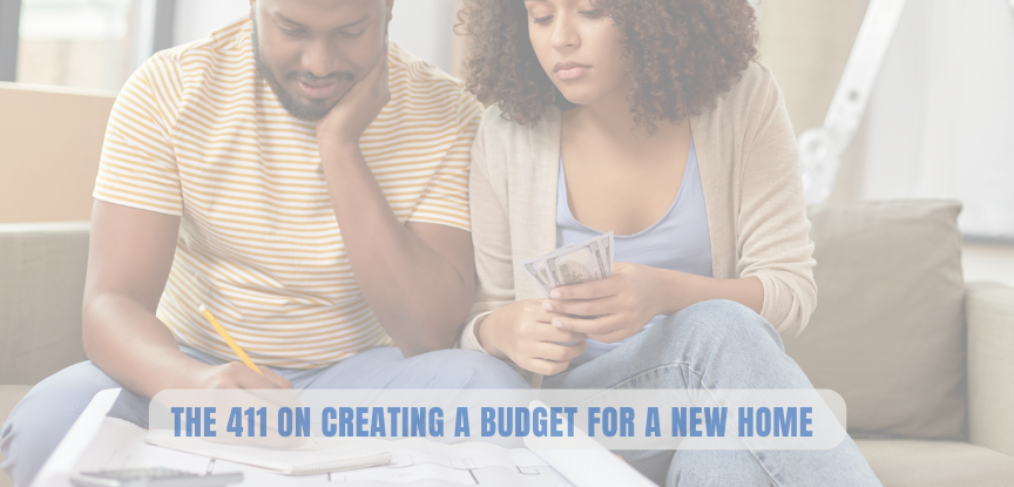
The 411 on Creating a Budget for a New Home
Are you finally ready for the next step? Buying your first home is one of the biggest purchases we make in our life. We spend our life dreaming of our future home and then one day we can finally make it a reality. Before you jump into this huge financial decision, it’s best to step back and evaluate you circumstances. Taking the time to determine how much you can afford is a big first step. You will want to calculate the costs before you even go to your first open house. We want to help set you up for success, so we’ve gathered a few tips to help you to review and adjust your finances prior to taking the leap into being a first-time homebuyer.
Focus on your income
Budgets are important for everyone to have. Sometimes it can feel intimidating to look at your finances, but it’s an important first step. The first step is to calculate your income sources after tax for the month and this will be your starting point.
Be aware of your current expenses
Every dollar should have a home. Take a moment to list all your monthly expenses so you can see where your money goes each month. It’s important to include any debt such as car payments, credit card payments, student and personal loan payments, etc. Once you have these basic expenses calculated you will have the dollar amount you have remaining for housing costs.
Get an idea of your new regular expenses
Homeownership comes with some additional costs that you weren’t responsible for previously. You will need to factor this into your usual household expenses such as mortgage and utilities.
Some things that are important to take note of:
- Home Maintenance – A used, or existing home, will always have a certain level of maintenance that should be factored in. If you can afford to buy a brand-new home, you won’t have to worry about typical home maintenance for some time. There’s also the option of homeowner warranty programs offered to help you with expenses that do come up. If you can’t afford a new home, it’s a good rule of thumb to set aside 1 to 2% of the value of your home for upkeep.
- Property taxes and homeowner’s insurance – When budgeting your monthly mortgage payment, you will want to be aware if your homeownership and property taxes are included or if you’ll need to make a separate payment. If they are included, you should take note that they costs can fluctuate each year based on changes in taxes and insurance premiums. If you are paying separately, it’s important to set aside money in your budget for these expenses so you aren’t caught off guard when the bill arrives.
- Homeowners association fees – If you end up purchasing within an HOA community you’ll need to set aside money each month toward the yearly fees. These fees are used to maintain common areas in a neighborhood and are collected either monthly or yearly.
Strengthen your finances
After you are aware of where your money is going, it’s time to take charge and make it go where you want. Take a moment to review any areas where you can adjust your spending. Evaluate if you can save money in any areas or pay down debt in order to increase the amount of money available for housing costs.
Start building your down payment
Take a moment to get pre-qualified for a mortgage and then create a savings plan. Once you know how much money you’ll need for a down payment you will be able to plan accordingly and avoid one of the biggest challenges to overcome.
Budgeting for a new home is one of the smartest moves you can make as you move toward homeownership. You may occasionally have to revisit and adjust over time as your financial situation changes. One more thing to remember is to try and build an emergency fund of 3-6 months of expenses. If you have any other questions or concerns about budgeting for a new home, we are happy to help!

